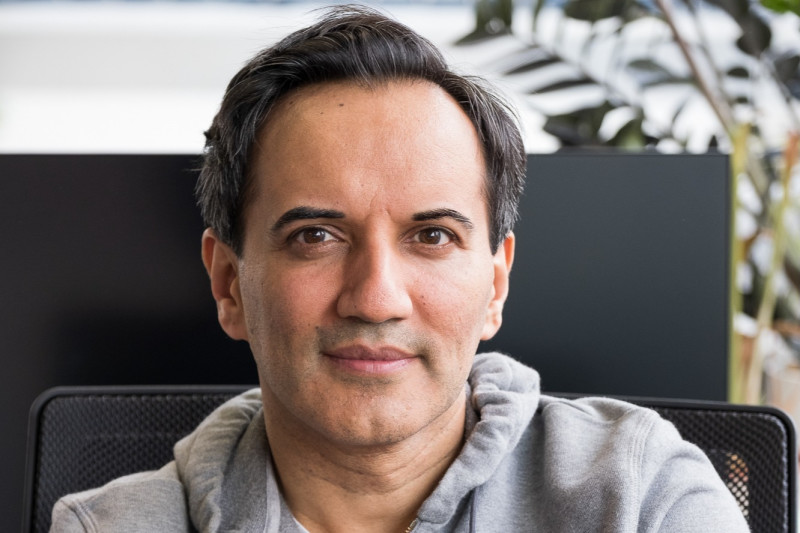- Iterate
- Meet The Team
- Investors Are Rushing to Fund a Greener Future in Britain
Investors Are Rushing to Fund a Greener Future in Britain
Table of contents
Taking action on the climate crisis is increasingly becoming a priority for all sectors across the economy, and as climate tech startups proliferate to address the crisis, investors too are jumping on board to tackle the issue. The Org spoke to some of the country’s growing climate tech companies on why it’s more important than ever to innovate in the space.

Taking action on the climate crisis is increasingly becoming a priority for all sectors across the economy, and as climate tech startups proliferate to address the crisis, investors too are jumping on board to tackle the issue.
Last month, research found that tech-startups with a focus on climate technology based in London attracted nearly £1 billion in venture capital backing last year.
The data, collated by Amsterdam-based tech data provider Dealroom, found that U.K. companies which focused on decarbonisation technology and the climate crisis raised £1.9 billion in investment in 2020, and have raised £261 million in 2021 so far.
There is mounting pressure on the British government, as well as industries and companies, to make serious plans and changes as the country gears up for the global climate COP26 summit in November, which will take place in Glasgow, Scotland.
The Org spoke to some of the country’s growing climate tech companies on why it’s more important than ever to innovate in the space.
Cervest, using AI for climate intelligence
Cervest is the world’s first AI-powered Climate Intelligence (CI) platform that delivers a standardised, science-based view of climate risk. The idea for the startup came to founder and CEO Iggy Bassi when he was running a sustainable agribusiness in Ghana.
“We had no way to assess how the impacts of climate change might affect our business,” Bassi said.
“Extreme weather was becoming more frequent, but still seemingly unpredictable. I returned to the UK determined to find a way to quantify climate risk - that’s where Climate Intelligence (CI) was born.”
Cervest was set up in 2016, and Bassi said investors recognised the need for CI early on, sharing an appreciation of the growing urgency around climate risk.
“The enormous disruption caused by fires, flooding and storms across America, Europe and Asia in recent months has shown that we can’t simply rely on emergency response to be the first line of defence against disasters.”
The team at Cervest completed their oversubscribed $30 million Series A round in less than two months, completing the raise in May.
“We went from initial presentations to term sheets in a matter of weeks – and all during the third lockdown,” Bassi said.The CI founder believes the investment surge is only set to grow in the U.K. as the climate crisis unfolds.
Bassi believes the U.K. is “proving to be an attractive location for climate tech businesses” due to “an abundance of investors, top science and tech talent, and government backing for innovation”.The future of CI also lies in the growing need to account for climate risks, which Bassi believes works on two levels. First, the extreme events caused by the crisis can no longer be ignored, so leaders must factor climate change into their decision-making, he said. Second, governments are increasingly implementing rules to force companies to disclose their climate risks, and must keep doing so, he added
To date, Cervest has raised a total of $36 million. Bassi said the company was using the investment to accelerate product development and growth across Europe and the U.S.A. The startup’s first Climate Intelligence product, EarthScan, is available to selected customers on an invitation-only basis.
DryGro, making water lentils the future of plant protein
The startup making waves with water lentils, DryGro, aims to build itself as the “future of plant protein”. Co-founder and CEO Sean Peters told The Org he was encouraged by the momentum of investment interest in sustainability, which would increase visibility and potential to scale up for startups in the space.
Peters and his colleagues set out to tackle the growing food crisis, marked by an increasingly overpopulated planet and the “sheer amount of land” needed to feed it. They saw the opportunity in producing food that doesn’t require arable land.
“If we can produce on non-arable land, we can open up many more possibilities for production,” he told The Org.
Peters launched DryGro out of Oxford University in 2015 while completing his MBA, where he met two of his co-founders Tim Kruger and Charlie Curtis. Curtis is an adjunct professor at Oxford and Kruger directs a research program into climate change at the Oxford Martin school.
It was Kruger, Peters said, who had the initial idea about “closed environment production of a protein crop”. Kruger and Curtis began doing small-scale tests on water lentils and a few other protein crops within a small facility at Oxford, with early tests providing positive outcomes.Peters then joined the company as the first CEO with the goal of building up an operational team.
DryGro launched its first pilot farm in Kenya in 2018, and, last May, the company closed a Series A round with an investment of £2 million.
Peters believes investor interest in climate tech will stay strong, not just because of its importance but because it has already set trends for businesses to catch up to.
“I think people will be increasingly interested in this space, both to build the climate mitigation systems we will need for the future, and capitalise on investment opportunities that have prescient insight into where these trends are heading,” Peters said.
He added that it was important to consider that “deep tech” and “science-based technology companies” have different relationships with investors than most entrepreneurial ecosystems.
“With B2B science-based technology companies, you are often dealing with markets that require industrial-scale production in order to be relevant,” he said. “That jump to scale acts as a barrier to entry, and slows innovation in those spaces.”
He said the capital and time required to scale was daunting, especially as you wouldn’t get metrics like revenue and customers within the first months or even years. “For digital investors, this makes the investment equation too different to be viable.”
However, he said, as high as the barriers are, rewards can be great.
“Market sizes, if they can be cracked, within these spaces are often massive, and so the prize for winning is significant,” he said.
“We have seen a growing number of investors who are recognising the potential of these longer-term, science-based plays for shifting multi-billion dollar industries. We have even seen really incredible industry organisations support these communities – folks like the Good Food Institute, EIT Food and EIT Climate KIC.”
He said that although raising capital was always a challenge, he was “very encouraged”” by the increasing capital that was flowing into this space, adding that the more startups that enter the climate tech -- and particularly the protein alternative -- scene, the more sustainable production can flourish.
“The market size here is massive, even when looking just at market expansion -- nevermind baseline markets that could be shifted today -- we’re talking about market demand expansion that is in the billions of dollars per year. Competition is good, and I think at this stage, perhaps counterintuitively, competition increases the viability of all early innovators in aggregate.”
The more protein alternatives -- and other climate tech companies within their respective niches -- that demonstrate themselves as viable investments, the more capital will enter the space to “chase” that validation, he said. “This is good for all of us.”
“Amongst protein companies specifically, a lack of competition is actually a significant vulnerability. If you are the only company in town producing a specific product, a larger corporate partner will perceive increased risk in partnering with you.”
Carbon Re, decarbonization for cost reduction
Carbon Re describes itself as an “AI & Climate tech company that develops solutions to help manufacturers decarbonize and reduce costs.”
Co-founder and CEO Sherif Elsayed-Ali formed the startup in October 2020 with three other co-founders right in the middle of the pandemic.
He told The Org that while it “wasn’t an easy start”, the timing also worked for Carbon Re, which formed itself into the groove of investors’ growing interest in decarbonisation.
“There’s been a lot of interest and investment in climate solutions in the past few years, but until very recently these more traditional industries were ignored by technology companies and investors,” Elsayed-Ali said.
“However the reality is that we will never get to zero if we don’t tackle sectors like cement and steel, which together are responsible for more than 15% of all global emissions.”
Elsayed-Ali believes that with the current trends in the world, climate change is only set to become more important to investors, saying it is a very simple reality: “climate change is the biggest economic threat and solutions for it represent the biggest economic opportunity in modern history.”
Elsayed-Ali also stressed the importance of offering practical solutions in the climate-tech space, saying whether a trade-off needed to be made between sustainability and profit would be the deciding factor for many industries.
He said Carbon Re’s product was a win-win for customers because they could get a new software product that allowed them to reduce emissions and costs, without having to invest in expensive new hardware.“It’s not always like this with climate solutions - at least in the short term,” he said.“That’s why we need the right public policies to accelerate the adoption of low and zero carbon solutions. Eventually though, if you look at a 10-20 year horizon, I believe no major corporation will be profitable if it’s not a climate-first company.”
Having a clear value proposition and addressing needs where they existed was imperative, he added.
Elsayed-Ali highlights the importance of younger audiences and generations in the surge of VC interest, despite the fact he doesn’t believe there is one single catalyst for climate tech’s growing importance in society.
“I think the student protests have been a much bigger catalyst than they are sometimes given credit for. I lost count of the number of times some senior person at a big company told me about their kids questioning them about what they were doing about climate change. This has a huge impact on business practices.”
He added that there has also been a “huge pressure from investors” as well as the effects of the pandemic. “I believe the pandemic has sharpened minds when it comes to climate change - there is a sense that we’ve had to live through this virus and were not very well prepared, but that there is massive threat that will have much bigger repercussions, and we have to do something about it now.”
Create your own free org chart today!
Show off your great team with a public org chart. Build a culture of recognition, get more exposure, attract new customers, and highlight existing talent to attract more great talent. Click here to get started for free today.


